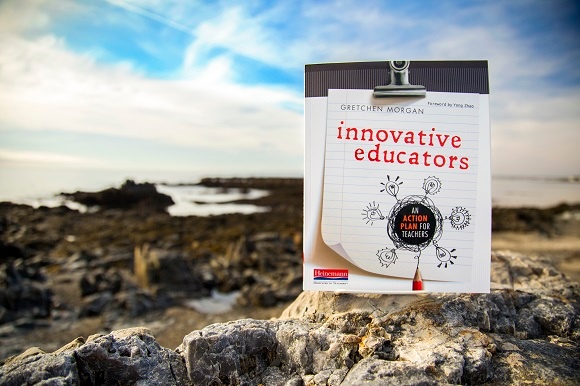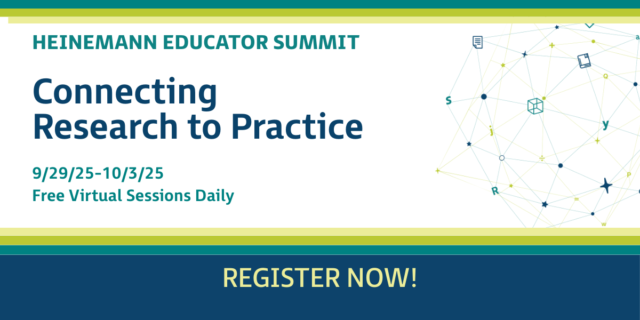We asked the Heinemann authors who published a book in 2014 to provide a resolution for 2015. We hope these resolutions--or edulutions--spark a note of self-reflection while lifting you to continue your good, vital work into the new year. Over the next two weeks as we share our education resolutions, we’d love to read your edulutions. Share them with us or follow along on Twitter with the hashtag #Heinemann15. Cheers for a happy new year!
We asked the Heinemann authors who published a book in 2014 to provide a resolution for 2015. We hope these resolutions--or edulutions--spark a note of self-reflection while lifting you to continue your good, vital work into the new year. Over the next two weeks as we share our education resolutions, we’d love to read your edulutions. Share them with us or follow along on Twitter with the hashtag #Heinemann15. Cheers for a happy new year!

-
“This year I am going to…
-
Stay focused on kids, because the promise, joy and enthusiasm of children is what drives me.
-
Challenge our ideas about what students are capable of, and why they come to school. Because our ideas are a hundred years old, and aside from a resurgence of 80’s fashion, our students don’t know what the demands of the 20th century were—or why we insist on talking about 21st century skills as though they are new and interesting.
-
Help schools become learning organizations. Not the purveyors of learning, but organizations built to learn, adapt, and perpetually evolve to make school relevant to students’ experiences and aspirations.”
-Gretchen Morgan, author of Innovative Educators

“This year, I resolve to look first at faces rather than spaces. In his powerful introduction to Imagine It Better, Peter Johnston tells us that we should judge schools not by test scores, but by expressions on the children's faces as they experience that school community. Wow. WOW! What a beautiful standard to which to hold ourselves. See, scores are all about spaces—spaces that which we are commanded to limit: the space between the student and the standard. The absence. Instead of focusing on these spaces, I resolve to focus on the faces of my 7th graders as they "live" with me in Room 340 everyday. I want to be judged as a teacher by my students' level of love for literature and life, not by their numerical absences. “
-Luke Reynolds, editor of Imagine it Better


